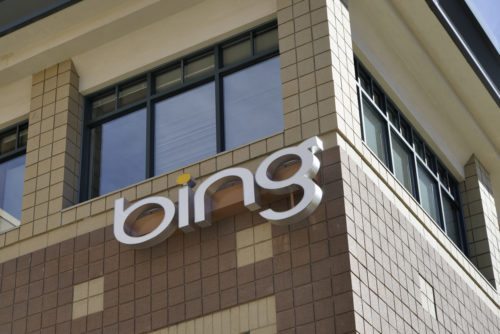 Google is so dominant in the search engine market, even its name took over search. You don’t ‘Bing’ anything. You ‘Google’ it. Which begs the question: is Bing even relevant anymore?
Google is so dominant in the search engine market, even its name took over search. You don’t ‘Bing’ anything. You ‘Google’ it. Which begs the question: is Bing even relevant anymore?
The short answer: yes. Microsoft has actually positioned Bing pretty well in the search market. Believe it or not, it’s likely that Bing will actually compete with Google one day for search market share.
How is Bing Positioned for the Future of Search?
Microsoft’s major advantage in the search market is their suite of products, devices and partnerships where Bing is an increasingly pervasive presence. For example, after Windows 10 launched, Bing gained 0.2% of Google’s search share. While in the bigger picture that still puts them far behind Google, it demonstrates how effective this approach can be.
Between Windows 10, Microsoft Office, LinkedIn, Cortana, PCs, mobile devices, Xbox consoles, Microsoft Azure and all their other offerings, Bing has the potential to be incorporated into a lot of very popular devices and services to help them gain market share.
More importantly, all these Microsoft services provide an enormous amount of user data. Eighty percent of the Fortune 500 is using the Microsoft Cloud. More than 400 million devices are running on Windows 10 and nearly the same number use Outlook for email communications.
All this data can be used to improve the performance of Bing as a search engine, allowing it to be successfully incorporated on the very devices and services this information was obtained from. Much of the information Microsoft owns is behavioral, as well as personal. As was mentioned earlier, this is exactly the type of information a search engine needs to be the predictive, local and personalized search engine of the future.
On top of this, Microsoft expects fruitful synergies between Office and LinkedIn, and for good reason. In the example laid out earlier, where the CEO visits his customer, you can see how much of the information provided to the CEO could be pulled directly from Microsoft Office and LinkedIn by Bing.
The incorporation of LinkedIn into the Microsoft suite of services is huge. LinkedIn is an extremely effective marketing and advertising platform, especially in the B2B sector where 89% of marketers say it’s their preferred channel and 50% of decision makers use it to make purchasing decisions.
Given the influence of LinkedIn on decision-makers, as well as the increasing amounts of data Microsoft can use to inform their search engine, Bing could be very well positioned in the future to provide easier access to decision makers.
This, of course, would be great for marketers and would likely attract higher ad spending for Microsoft. But it illustrates one way that Bing could get a leg up on Google in the future as search engines evolve.
 LinkedIn is a major asset for Microsoft, but the entirety of their product and service offerings have positioned Bing to be a contender in the search engine market in the near future.
LinkedIn is a major asset for Microsoft, but the entirety of their product and service offerings have positioned Bing to be a contender in the search engine market in the near future.
An Opportunity for Marketers and Business Owners
Google is still the dominant search engine and will be for a while. But for marketers and business owners, it’s worth keeping an eye on Bing. Microsoft has done some very interesting things to improve and promote the growth of Bing.
Search engines will be very different as our devices change and their capabilities increase. The rise of Bing presents a chance for businesses to be leaders in the digital space.
